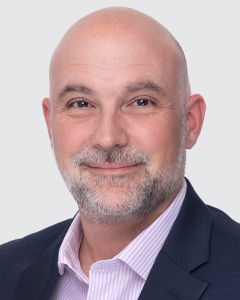Social media sites are filled with influencers eager to talk about their cosmetic surgery journeys. But you can’t always believe what you see – particularly in a world where AI images and videos can present a reality that simply doesn’t exist.
This combination of elements can create a distorted image of cosmetic surgery, making this landscape difficult to navigate. If you aren’t careful, you may set yourself up for disappointment because of unrealistic expectations.
Social Media’s Influence
Cosmetic surgery posts are popular on social media sites like TikTok, Instagram and Facebook, where influencers share their experiences. These stories often detail the transformations, using before and after photos or videos.
It is difficult to overstate the impact this content can have. Recent trends toward thinness have been driven, in part, by popular influencers like the Kardashian family, whose members have been trending skinnier.
Influencers aren’t shy about sharing explicit details about their plastic surgeries – including telling followers about specific implant sizes and shapes. This has its benefits for cosmetic surgery in that it normalizes many of these procedures and helps women and men better understand potential options.
But unfortunately, some of the content – whether it’s about surgical or nonsurgical options – is being created with artificial intelligence, which is where some problems arise.
Distorting Reality
Influencers often prefer to show their lives as nothing less than ideal. With many topics this might not create any serious conflicts. But with cosmetic surgery, they can be tempted to offer distorted versions of their treatments.
As a result, they may misrepresent their procedures, risks, benefits, recovery times and even the results.
This can be problematic for people who don’t know anything more about the procedures than what they are seeing on those social media posts. They may think they can get a facelift on Friday and then be at the beach playing volleyball on the weekend. Or patients may walk into their plastic surgeon’s office expecting to get a type of implant that hasn’t even been approved by health regulators.
The trend of minimizing the risks, while glorifying the benefits contributes to patients not understanding potential complications involved with the procedures – some of which are major surgeries.
They don’t realize they’ll be going into an operating room (possibly under general anesthesia) or that their bodies will be cut open and repaired with sutures and drainage tubes. They don’t understand that they won’t be able to go into the water, run, jog, swim or exercise for six weeks after surgery.
Instead, they expect to go in for the procedure and wake up the next day looking great. That’s simply not the reality of cosmetic surgery. Breast reconstruction surgery, for example, often requires multiple surgeries over several months.
Seeking Solid Information
If a TikTok video sparks your interest in a particular cosmetic procedure, there are places you can go for higher-quality information. Start by closing out of that social media site and opening Google or some other search engine.
Keep in mind that good and bad information can be found online. Focus your internet research on web sites controlled by major hospitals or associations such as the American Board of Plastic Surgery or American Society of Plastic Surgeons. These sites will offer detailed descriptions of what happens with a particular procedure, including recovery time, risks and what it will (or won’t) do for you.
You can also make an appointment with a plastic surgeon. During a consultation, the surgeon will ask about your goals and then walk you through your options. This is a great time to ask questions and make sure you understand everything that will go into your procedure and how it will affect you.
This content is not AI generated.
Choose to Stay in Touch
Sign up to receive the latest health news and trends, wellness & prevention tips, and much more from Orlando Health.
Sign Up





